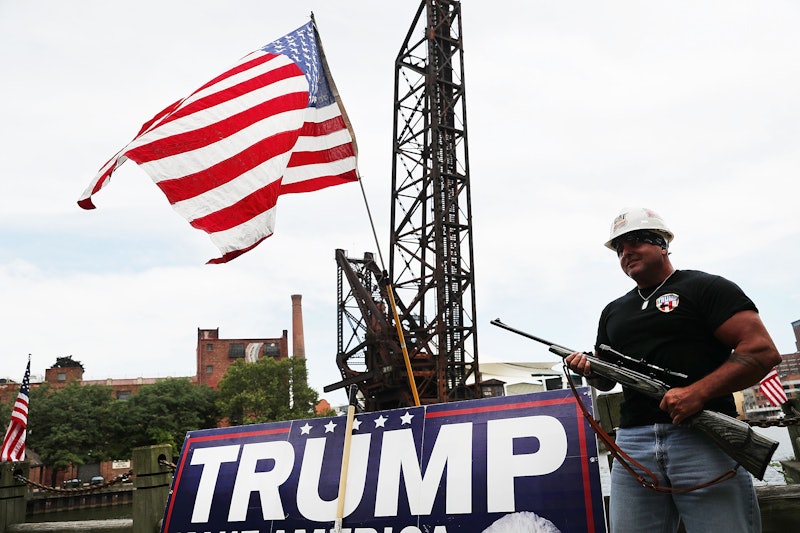News
Donald Trump Told The NRA No More Gun-Free Zones
On the campaign trail, Donald Trump made a number of extreme policy declarations, and one of them was about gun-free zones. Those are places like schools or even military bases where it is illegal for members of the public to carry a firearm — concealed or not. Given his backing by the NRA, it's not surprising that Trump has at times said that he would like to get rid of them, but will Trump actually get rid of gun-free zones now that he's moving into the White House?
Like most of Trump's campaign promises, the answer is unclear. The gun-free zone controversy has been renewed every time there is a mass shooting in the United States, and the NRA wants to get rid of the legislation. As conservative media organizations like National Review point out, all but two mass shootings since 1950 have occurred in a gun-free zone. Back in January, Trump brought this up at a campaign rally. He seemed pretty unequivocal in his support for the policy proposal: "I will get rid of gun-free zones on schools, and — you have to — and on military bases. My first day, it gets signed, okay? My first day. There's no more gun-free zones."
Since then, he has backtracked somewhat, which explains why his current position is less clear. For example, in May, he reiterated his vow to "rid" the United States of gun-free zones at the National Rifle Association Leadership Forum in May. "We’re getting rid of gun-free zones, OK?” he told the gathered crowd of NRA members, who support lax or no gun control legislation.
Just days later, though, he clarified that not everyone should be allowed to bring guns into schools — just trained safety officers or certain teachers. "I don't want to have guns in classrooms, although in some cases teachers should have guns in classrooms, frankly," he told Fox News days after the NRA forum. He also told CNN, "The problem with gun-free zones is it's like offering up candy to bad people." But it does sound like he's open to some limits if there are armed guards.
All of this will be interesting, because even if he decides that he wants to, he can only get rid of some gun-free zones — those that are covered by federal law or those on military bases. Some have called on him to end those on the first day. As for schools, he would need to work with his Republican colleagues to repeal the bipartisan Gun-Free School Zones Act, which was passed in 1990.
